★★★½
“The fall gal.”
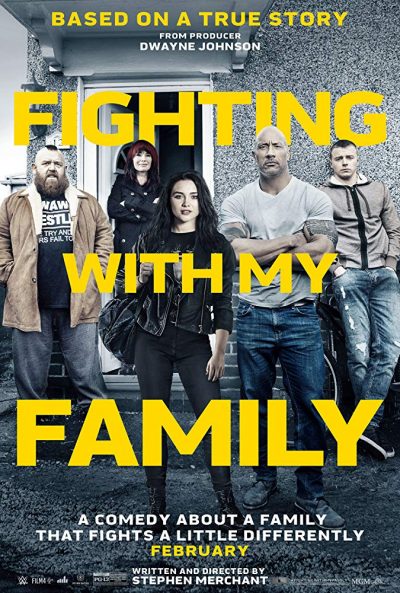 This biopic of WWE Women’s Champion Paige, a.k.a. Saraya Knight from the English seaside town of Norwich, gets a lot of things right about professional wrestling. In particular, it strikes a good balance between the various aspects – positive and negative – of the sports entertainment business. Over the past twenty years, Chris and I have been intermittently involved with the independent end of the wrestling scene, like Knight and her family, and this captures the low-rent showbiz aspects beautifully. Yet it doesn’t shortchange the seductive – almost addictive – appeal of performance for a responsive crowd, or the potential escape from a drab life it offers someone like Saraya/Paige.
This biopic of WWE Women’s Champion Paige, a.k.a. Saraya Knight from the English seaside town of Norwich, gets a lot of things right about professional wrestling. In particular, it strikes a good balance between the various aspects – positive and negative – of the sports entertainment business. Over the past twenty years, Chris and I have been intermittently involved with the independent end of the wrestling scene, like Knight and her family, and this captures the low-rent showbiz aspects beautifully. Yet it doesn’t shortchange the seductive – almost addictive – appeal of performance for a responsive crowd, or the potential escape from a drab life it offers someone like Saraya/Paige.
This was inspired by a documentary of the same name, which covered everything up to her successful tryout with WWE, but not much thereafter. To be honest, that’s probably the most entertaining section, being a thoroughly amusing series of escapades, populated by quirky and amusing characters, inhabiting the low-rent world at the bottom of the wrestling pyramid. Not the least of these are her parents, plaved by Frost and, surprisingly, Lena Headey. It’s… strange seeing Cersei Lannister putting people into a headlock. [Fun fact: I saw Saraya’s Mum wrestle at the Fairfield Halls in Croydon, back in the late nineties – even if they mis-spelled her name on the flyer!]
Once she goes over to the United States, it becomes a rather more predictable “fish out of water” story, with the dark, somewhat sullen Paige a radical departure from the other wannabe Divas, who all align more with the three T’s required by WWE at the time: teeth, tan and tits. The highlight in this phase is Vaughn’s performance as acerbic (and fictional) coach Hutch Morgan, who pulls no punches in his quest to winnow out the chaff for the benefit of his employer. For Paige, that transition is about becoming comfortable in her own skin, and repairing the relationship with her brother (Lowden), who also wanted – arguably, even more than Saraya – to reach the WWE, but was not offered a spot. To no-one’s surprise (even if you don’t know the story, this sticks to the well-worn path of the underdog sports film), she does so, and the film ends as she makes her debut, the night after Wrestlemania in New Orleans.
In terms of happy endings, that’s probably for the best. For injury forced Paige’s eventual retirement in April 2018, at the age of just 25, after barely two years of active competition and four in total. Not mentioned by the film, it’s a salutary reminder: a pro wrestler’s career is hard, and can be short. This is certainly a story which has been dramatized for cinematic purposes, probably inevitably. Yet the basic thread is intact – and, more importantly, the spirit of the people who inspired it is honoured. Having it directed by Merchant, previously best known as Ricky Gervais’s sidekick, proves a masterstroke. In his able hands, and helped by a winning performance from Pugh, the hackneyed material proves more than tolerable.
Dir: Stephen Merchant
Star: Florence Pugh, Jack Lowden, Vince Vaughn, Nick Frost





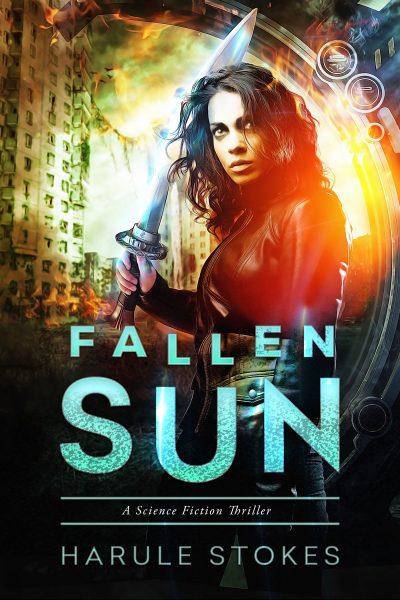 While not perfect, I think this one will probably end up sticking in my mind longer than most of the books I read. For one, it helps being a stand-alone and complete work, rather than the first of a multi-volume set. While I understand the rationale behind the latter – that’s where the bread and butter of writing income is made – it was refreshing to get a beginning, middle and proper end, without a cliff-hanger or opening for sequels. It was also different in content, rather than being yet another book which drops fantasy creatures like elves or vampires in a contemporary setting. I’ve seen enough of those this year, thankyouverymuch.
While not perfect, I think this one will probably end up sticking in my mind longer than most of the books I read. For one, it helps being a stand-alone and complete work, rather than the first of a multi-volume set. While I understand the rationale behind the latter – that’s where the bread and butter of writing income is made – it was refreshing to get a beginning, middle and proper end, without a cliff-hanger or opening for sequels. It was also different in content, rather than being yet another book which drops fantasy creatures like elves or vampires in a contemporary setting. I’ve seen enough of those this year, thankyouverymuch.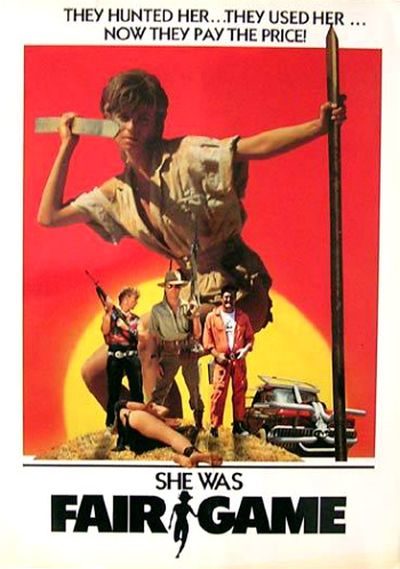 First off, this is not to be confused with the other Australian film of the eighties
First off, this is not to be confused with the other Australian film of the eighties  The handling of this story is a little different from the usual novel. Julien adopts an “episodic” approach, with the story initially released in novella-length installments (seven of which have come out to the point of writing), some with cliffhangers. In structure, this is almost like the
The handling of this story is a little different from the usual novel. Julien adopts an “episodic” approach, with the story initially released in novella-length installments (seven of which have come out to the point of writing), some with cliffhangers. In structure, this is almost like the  Oh, dear. A misbegotten concept – Sweet Home Alabama crossed with Rocky – doubles down with shaky execution, and a non-stop parade of painfully obvious cliches in both characters and plot, to startlingly poor effect. As evidence of the first, imagine a film about a man, dumped by his girlfriend, who decides that beating her up is appropriate revenge. This would not exactly be anyone’s idea of comedy gold. But the makers here think that, simply by reversing the genders, it becomes so. They are very much mistaken. I believe I laughed once.
Oh, dear. A misbegotten concept – Sweet Home Alabama crossed with Rocky – doubles down with shaky execution, and a non-stop parade of painfully obvious cliches in both characters and plot, to startlingly poor effect. As evidence of the first, imagine a film about a man, dumped by his girlfriend, who decides that beating her up is appropriate revenge. This would not exactly be anyone’s idea of comedy gold. But the makers here think that, simply by reversing the genders, it becomes so. They are very much mistaken. I believe I laughed once.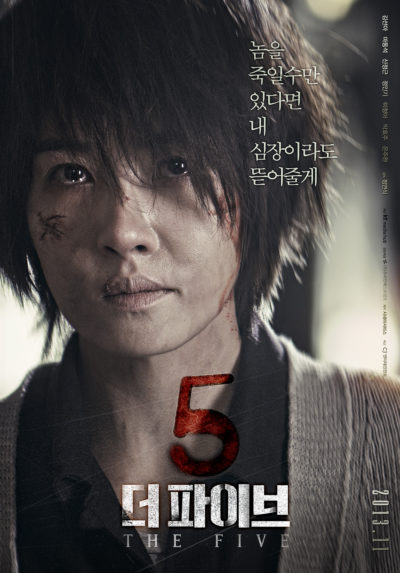 A chance encounter in a convenience store destroys the life of Go Eun-ah (Kim). For her young daughter accidentally sees serial killer Oh Jae-wook (On) abducting his next victim. Realizing he has been spotted, Jae-wook carries out a brutal home invasion, killing both the daughter and Eun-ah’s husband, and leaving her permanently paralyzed. But he has reckoned without Eun-ah’s fortitude. She devotes the rest of her life to tracking down her attacker, and puts together a team of four to help her. All need transplants, for them or their family. So Eun-ah has promised that once Jae-wook has been captured, delivered to her and killed, she will give them her organs. Damn. That’s what I call “fully committed”… But when Jae-Wook realizes he is being hunted, he turns his attentions on the hunters.
A chance encounter in a convenience store destroys the life of Go Eun-ah (Kim). For her young daughter accidentally sees serial killer Oh Jae-wook (On) abducting his next victim. Realizing he has been spotted, Jae-wook carries out a brutal home invasion, killing both the daughter and Eun-ah’s husband, and leaving her permanently paralyzed. But he has reckoned without Eun-ah’s fortitude. She devotes the rest of her life to tracking down her attacker, and puts together a team of four to help her. All need transplants, for them or their family. So Eun-ah has promised that once Jae-wook has been captured, delivered to her and killed, she will give them her organs. Damn. That’s what I call “fully committed”… But when Jae-Wook realizes he is being hunted, he turns his attentions on the hunters.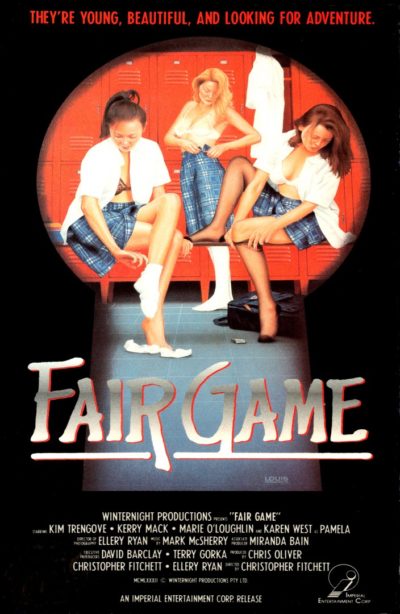 In particular, not to be confused with the Cindy Crawford film of the same name. But for the purposes of this site, more importantly, not to be confused with the film of the same name,
In particular, not to be confused with the Cindy Crawford film of the same name. But for the purposes of this site, more importantly, not to be confused with the film of the same name, 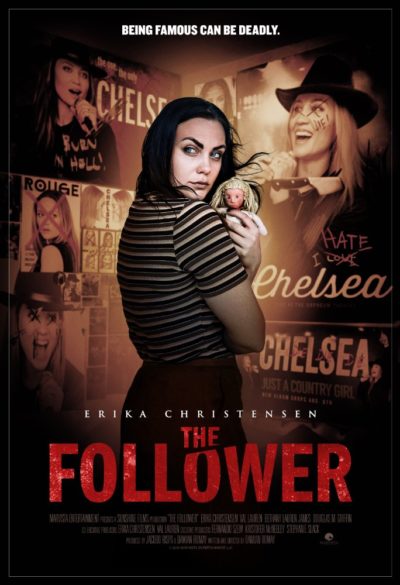 Country singer Chelsea Angel (Christensen) announces to her fanbase that’s she taking a time-out from touring and recording – not least because of her recently-discovered pregnancy. Her flight home crashes in the middle of nowhere, and she wakes up to find herself chained up in a remote cabin, along with another survivor, Evelyn (James). Except, it soon turns out that Evelyn isn’t the innocent air hostess she initially appears. She’s Chelsea’s most obsessive and dedicated fan, who was actually responsible for the plane going down. And now, she has the object of her affection – not to mention, her unborn baby – all to herself, for some quality time, in which she can address Chelsea’s new style, with which Evelyn is not happy. Meanwhile, the singer’s boyfriend, Dillon (Lauren), and the guy in charge of her fan-club, Frank (Kirkpatrick), are trying to figure out where Chelsea has gone, following the online trail Evelyn left behind.
Country singer Chelsea Angel (Christensen) announces to her fanbase that’s she taking a time-out from touring and recording – not least because of her recently-discovered pregnancy. Her flight home crashes in the middle of nowhere, and she wakes up to find herself chained up in a remote cabin, along with another survivor, Evelyn (James). Except, it soon turns out that Evelyn isn’t the innocent air hostess she initially appears. She’s Chelsea’s most obsessive and dedicated fan, who was actually responsible for the plane going down. And now, she has the object of her affection – not to mention, her unborn baby – all to herself, for some quality time, in which she can address Chelsea’s new style, with which Evelyn is not happy. Meanwhile, the singer’s boyfriend, Dillon (Lauren), and the guy in charge of her fan-club, Frank (Kirkpatrick), are trying to figure out where Chelsea has gone, following the online trail Evelyn left behind.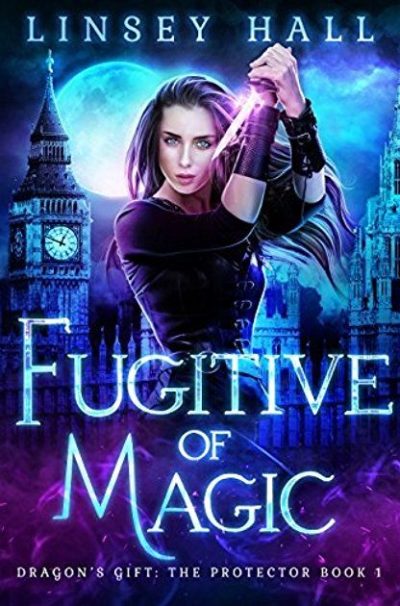 It’s probably worth noting that although this is Volume 1 in the somewhat clunkily-named “Dragon’s Gift: The Protector” series, it follows in the wake of two other Dragon’s Gift threads by the same author, The Huntress and The Seeker. While you don’t need to have read those to enjoy this, it does explain a structure, which could seem somewhat odd. For the volume sets up a trio of treasure-hunting magicians – Cass, Del and Nix – then all but discards the first two and concentrates heavily on Nix. Turns out Cass and Del were the subjects of the Huntress and Seeker sagas respectively, and the Protector gives Nix her turn in the spotlight. This is why some aspects, such as the shop run by the three women, seems more than a bit undeveloped: I presume they were featured in the ten or so previous volumes set in the same world.
It’s probably worth noting that although this is Volume 1 in the somewhat clunkily-named “Dragon’s Gift: The Protector” series, it follows in the wake of two other Dragon’s Gift threads by the same author, The Huntress and The Seeker. While you don’t need to have read those to enjoy this, it does explain a structure, which could seem somewhat odd. For the volume sets up a trio of treasure-hunting magicians – Cass, Del and Nix – then all but discards the first two and concentrates heavily on Nix. Turns out Cass and Del were the subjects of the Huntress and Seeker sagas respectively, and the Protector gives Nix her turn in the spotlight. This is why some aspects, such as the shop run by the three women, seems more than a bit undeveloped: I presume they were featured in the ten or so previous volumes set in the same world.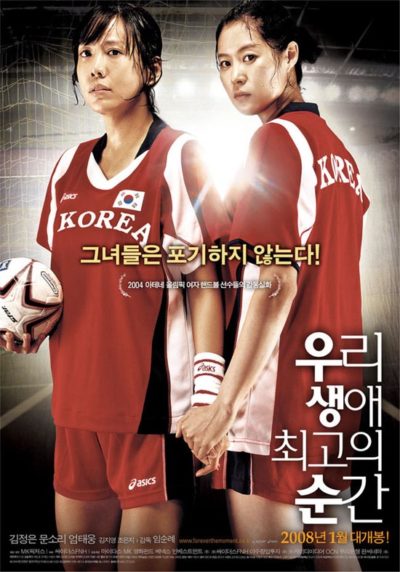 Every four years, when the Olympics arrive, we fall in love with handball. What is handball, you might be asking. Basically, think seven-a-side soccer, except (obviously), played with the hands rather than feet. It’s an amazing sport, all but unknown in the UK and US, and deserving a far wider audience – a YouTube search for “Olympics handball” will get you sorted. Which is why we were fascinated by the idea of a film focusing on it, specially, the story of the 2004 South Korean women’s team. What they did was roughly that country’s equivalent of the 1980 ‘Miracle on Ice’. The once-dominant Korean team had fallen far from grace, and barely qualified for the Athens Olympics. But they reached the final, against the Danish side, which went into double overtime, and then a penalty shootout.
Every four years, when the Olympics arrive, we fall in love with handball. What is handball, you might be asking. Basically, think seven-a-side soccer, except (obviously), played with the hands rather than feet. It’s an amazing sport, all but unknown in the UK and US, and deserving a far wider audience – a YouTube search for “Olympics handball” will get you sorted. Which is why we were fascinated by the idea of a film focusing on it, specially, the story of the 2004 South Korean women’s team. What they did was roughly that country’s equivalent of the 1980 ‘Miracle on Ice’. The once-dominant Korean team had fallen far from grace, and barely qualified for the Athens Olympics. But they reached the final, against the Danish side, which went into double overtime, and then a penalty shootout.